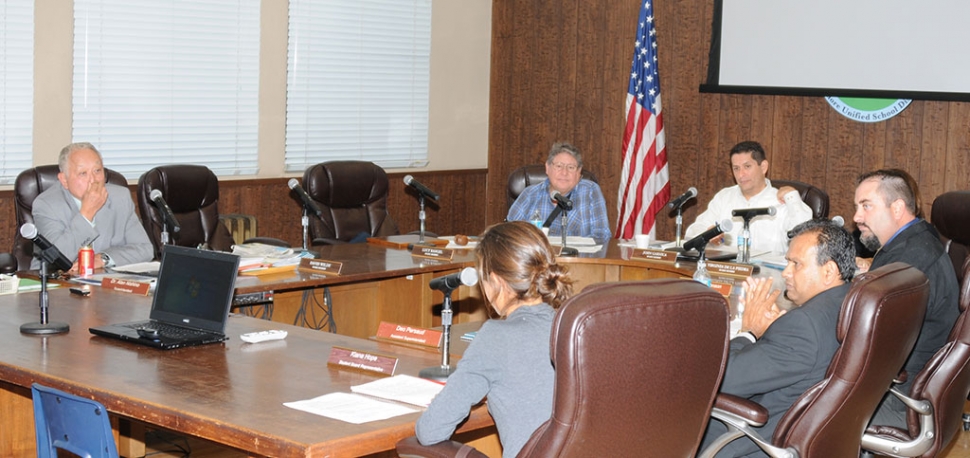|
Common Core "Shifts" in Teaching Come at a Price
 By Jean McLeod — Wednesday, December 4th, 2013
Tuesday's Fillmore Unified School District (FUSD) Board Meeting focused on the Common Core State Standards (CCSS) and school funding. There was also a presentation of FUSD's 2012 and 2013 audit by Jenny Dominguez, Senior Manager of Forensic Services at Vicenti, Lloyd, Stutzman Business Consultants and CPAs. Raina Arellano, Educational Staff Services, presented the CCSS Update: Fillmore High School Curriculum Map Implementation Plan. This is a continuance of the "shift" in teaching that was presented to the Board at the last meeting. Arellano's presentation follows the work of Heidi Hayes Jacobs, Executive Director of the Curriculum Mapping Institute, whose work school districts throughout the country are following. Jacobs considers present teaching skills and paper textbook to be dated. Her website states that teaching for the 21st Century requires overhauling and updating the K-12 curriculum replacing it with contemporary content and skills in a deliberate process of upgrading to technology and how these changes are transforming teaching. The site goes on to say that with these newer technology tools students will be motivated and more engaged, with the goal to encourage wanting to learn. What Jacobs is striving for are students becoming informed users of multiple forms of media and gaining a global perspective. Students writing essays or teachers standing at the front of the class giving a lecture is a thing of the past. Arellano told the Board, "This is a big shift from what we're use to." This "shift" as it’s called is placing great stress on schools throughout the state and country including FUSD. Assistant Superintendent Michael Johnson told the Board the District is "....taking it a little piece at a time, over a three year period." He added that the County of Ventura told him there are nine essential curriculum pieces to the map. This will require teachers to be reeducated in instruction and teaching in a short amount of time. After listening to the presentation Board Member John Garnica responded, "There doesn't seem to be an answer...I'm just not feeling comfortable with this....[T]his feels really loose, can't we just come to the middle." He ended his comments with; we want to leave kids with a positive (experience). Board Member Tony Prada responded that what he sees is a lot of repetition and the same things that were done in the 80's and 90's. Johnson informed the Board that at a future meeting he will explain what the major shifts are. Within the Control Funding Formula (CFF) is a newly required Local Control Accountability Plan that will give schools a one time funding for CCSS upgrades. FUSD is expected to receive $762,000 to buy technology upgrades and retrain teacher to align with CCSS; but making such "shifts" at a time when so much else is unsure, such as the Affordable Care Act and how or if that will be funded along with a soft state economy puts into question the availability of monies to make such drastic changes. Schools will transition to CFF using Proposition 98, a constitutional amendment approved by voters in 1988. But the future funds are not guaranteed. Johnson reminded those in attendance that Prop. 30, Gov. Jerry Brown's ballot initiative that raised personal income tax on the those jointly making over $500,000 or singly earning $250,000, expires in 2018 and the four year quarter of a cent sales tax increase on everyone expires in 2016. The school funds were formulated to depend on a thriving state economy which may or may not be happening depending on who you listen to. Persaud warned everyone to be cautious with any commitments, adding that the money needs to be saved from monies already received to cover those future commitments, adding that an economic turn down and the expected future money may not be there. Persaud ending with, "Don't spend money that you don't have." CPA Jenny Dominguez gave a presentation on the 2012 and 2013 audits of FUSD and told the Board that both years produced a clean audit. |
